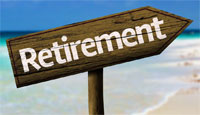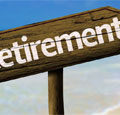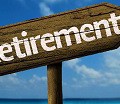Every family budget is different. Maybe you like spending your extra money on gourmet cheeses while your neighbor has no intention of giving up her commitment to exotic orchids. But for most retirees, these individual idiosyncrasies aren’t what drive the costs of retirement. It’s the daily, recurring expenses that quickly accumulate.
If you want a smooth-sailing retirement, then you need to reel in these expenses before they control your life. The good news is that there’s much you can do to get your budget under control before you retire.
Needless Luxuries and Impulse Buys
Do you really need that $5 mocha at Starbucks? What about the $2 bag of chips you stop for every day on your way home from running errands? These small purchases are easy to make because they feel so trivial, but they add up over time. If you make coffee at home you can easily save a few dollars each day–$1,000 or more over the course of a year. Look long and hard not just at your big expenses, but on the needless expenditures and impulse buys that are ingrained into your everyday existence.
Retirement and Debt
It doesn’t matter how much you have saved. Debt almost always carries a higher interest rate than savings, which means your debt will run through your retirement income faster than your savings accounts can accumulate interest. Debt payments are essentially payments toward nothing. All that interest disappears into the ether, rather than settling into an interest-bearing account that works for you. The sooner you pay down your debts, the fewer interest payments you will make. And the fewer interest payments you make, the more money you’ll have in your pocket—and in your retirement accounts.
Retirement and Health Care Costs
The average senior will need almost $250,000 to cover out-of-pocket health care costs incurred during retirement. You might have even more if you live a long time or develop a serious illness, such as Alzheimer’s, that necessitates intensive long-term care. It’s no wonder, then, that medical bills are the leading source of U.S. bankruptcies. Though you can’t altogether avoid health care costs, you can talk to your doctor now about what you can do to remain healthy in retirement. A few minutes of exercise each day, a reduction in your sodium intake, or a few simple steps to control your stress could all help you achieve better long-term health.
Retirement and Taxes
You won’t be stuck paying payroll taxes any longer, but you will still have to pay some taxes—including on Social Security and on dividends and interest from your retirement accounts. Some states are kinder to retirees than others when it comes to taxation. So if you have large investments or are concerned about the long-term costs of taxes, consider moving to a state with a lenient tax policy that helps you keep more of your money.
Retirement and Housing
Your home is likely your largest investment and your biggest expense. Even if you’re no longer paying a mortgage, housing expenses such as home repairs, furniture, homeowners insurance, and upgrades can quickly add up. If you have more house than you need, or are concerned about a creaky older house, consider moving to a smaller, newer place. No one wants to fix a hot water heater or clean a flooded basement on a fixed income. If you need additional money to fund a home repair and are over the age of 62, a reverse mortgage is an option for covering your expenses.
Five Retirement Expenses That Will Cost You Big Time – Final Thoughts
Entering into retirement can be a fun and exciting time in one’s life. It’s important to keep these five highlighted expenses that will cost you big in retirement at the front of your mind. With some planning and forethought, you can work to minimize these big ticket expenses as much as possible. This will help you live a long, stress-free and enjoyable retirement.









